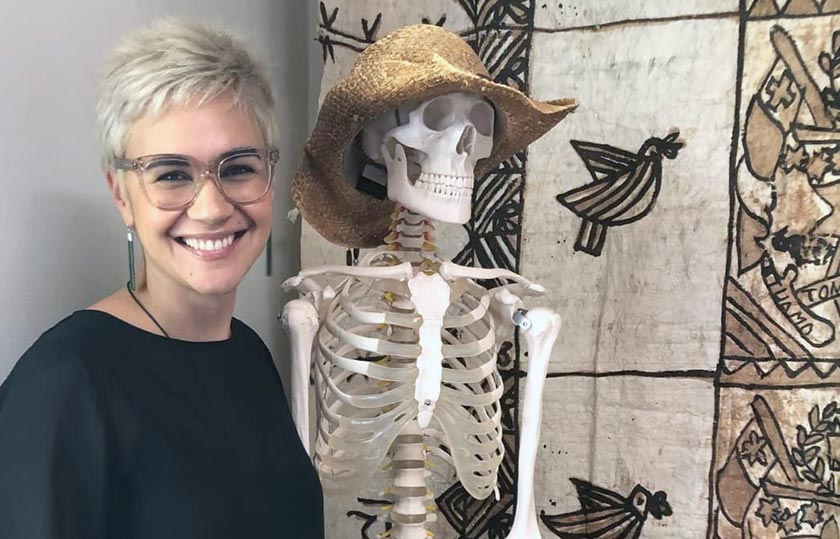Her kōrero, “The power and privilege of storytelling in medicine”, drew on her experiences in medical school so far, as well as her observations of the health-care system and the stories that need to be told to change it.
How to take histories
Her opening comments, for instance, reflected on the Pākehā way that trainee doctors are taught to take histories. These, she says, are very transactional and don’t allow for whakawhanaungatanga, which is crucial for whānau, not least because they rightfully distrust a system that does not look after them as well as others.
She said: “The most impactful facilitator of safety is whakawhanaungatanga”, and she applauded the expertise of Māori nurses who do this. They are the bridge between whānau and the health system. And it was not until her general practice placement at Ki A Ora Ngātiwai – the iwi health provider in Whangārei – that Emma says she saw such a truly “culturally safe health service”.
‘The whole team was mobilised around making sure that people are well, not just being treated for being sick.’
At Ki A Ora Ngātiwai, not only was whakawhanaungatanga a priority in meeting whānau needs in a social sense, it was also crucial because it uncovered the specifics of patients’ circumstances. “The whole team was mobilised around making sure that people are well, not just being treated for being sick.”
Yet, despite the life-changing mahi these providers do, Emma pointed out that they also have to deal with a higher burden of compliance than non-Māori contractors. Extending this observation further, she highlighted that you can draw a direct line from racist nurses, like the one who got struck off in Taranaki, to the health system that underfunds and devalues Māori nurses and providers.
The resounding message from Emma was the necessity to have rangatiratanga over story-telling. That meant telling the story of these connections in the racist system, and calling out the different standards that Māori and iwi providers have to comply with and the racism that nurses have to deal with. And finally, too, it meant celebrating the uniqueness of Māori health practitioners, and finding strength in their own connections.



